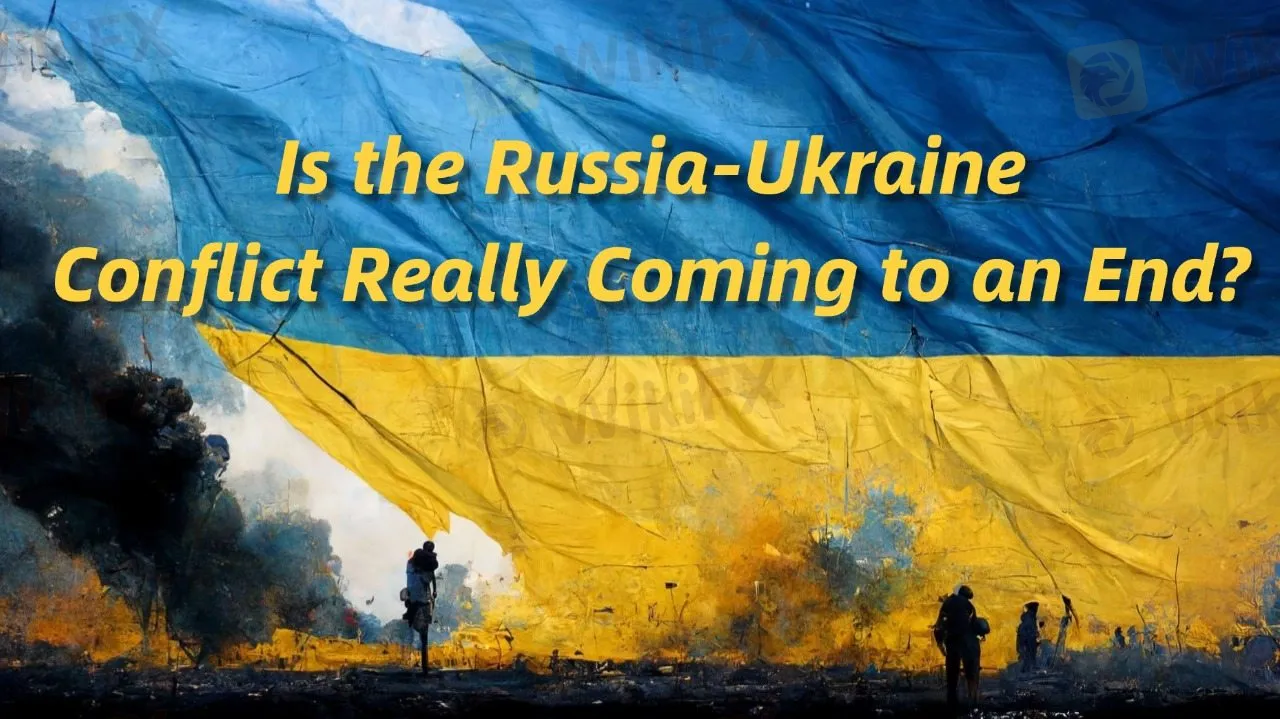简体中文
繁體中文
English
Pусский
日本語
ภาษาไทย
Tiếng Việt
Bahasa Indonesia
Español
हिन्दी
Filippiiniläinen
Français
Deutsch
Português
Türkçe
한국어
العربية
Is the Russia-Ukraine Conflict Really Coming to an End?
Abstract:As the Russia-Ukraine conflict approaches its third year, international attention to the situation has intensified. The U.S. government is actively seeking a solution to end the conflict.

According to reports, the U.S. plans to present a proposal at the Munich Security Conference in Germany next week aimed at ending the Russia-Ukraine conflict. The plan may include freezing the current conflict, leaving the territories controlled by Russian troops in a state of limbo, while providing security guarantees to Ukraine to ensure Russia does not launch another attack.
However, there is division within the U.S. government on how to end the conflict. Trump's administration is split into two camps. On one hand, National Security Advisor Robert O'Brien and U.S. Special Envoy for Ukraine Keith Kellogg advocate for using America's influence to force Russian President Vladimir Putin to make concessions and reach a peace agreement. On the other hand, some in Trump's government suggest reducing aid to Ukraine, believing that this would force Ukraine to accept peace talks more quickly. This proposal has sparked widespread controversy, with critics arguing that it effectively disarms Ukraine and forces it to surrender to Russia.
During his campaign, Trump repeatedly stated that he could quickly end the Russia-Ukraine conflict once in office. However, as the situation has evolved, he has come to realize that the process of ending the war may be far more complex and lengthy than he initially anticipated. In this context, Trump has publicly stated that if Putin does not engage in negotiations, the U.S. may impose more sanctions and tariffs on Russia. Nevertheless, due to the significant decoupling of the U.S. and Russian economies, the pressure that Trump can exert on Russia through tariffs is likely to be limited.
Despite the U.S. government's efforts to pressure Russia through political and economic means, ending the conflict remains a significant challenge. First, existing international sanctions have placed immense pressure on Russia's economy, but the sanctions that the U.S. can still impose are quite limited. Additionally, the sharp decline in trade means that Trump's tariff threats against Russia are losing effectiveness, and with the U.S. and Russian economies almost fully decoupled, America's economic leverage over Russia has been greatly diminished.
Both Russia and Ukraine have shown some willingness to negotiate regarding the future of the conflict. Ukrainian President Zelensky recently indicated that he does not rule out the possibility of dialogue with Putin, while Russia has also expressed its willingness to engage in talks under certain conditions. However, significant obstacles remain, including issues of legitimacy surrounding Zelensky, which complicate the process. Meanwhile, Russia continues to insist on certain conditions before further discussions can take place.
Given the complexity of the Russia-Ukraine conflict, the international community and all involved parties must adopt a more flexible and pragmatic approach. The U.S. role is crucial, and whether the proposed plan to freeze the conflict can be implemented will depend on the responses and actions of all parties involved.

Disclaimer:
The views in this article only represent the author's personal views, and do not constitute investment advice on this platform. This platform does not guarantee the accuracy, completeness and timeliness of the information in the article, and will not be liable for any loss caused by the use of or reliance on the information in the article.
Read more

Top Profitable Forex Trading Strategies for New Traders
Know profitable Forex strategies for beginners, including risk management tips, best currency pairs, technical analysis tools, and timeframe selection.

Germany's Election: Immigration, Economy & Political Tensions Take Centre Stage
Germany is set to hold a crucial general election on 23 February 2025, with voter frustration over migration emerging as a dominant issue.

ED Exposed US Warned Crypto Scam ”Bit Connect”
The Indian Enforcement Directorate (ED) recently exposed a crypto Scam from a firm called Bitconnect. During the investigation, which took place on February 11th and 15th, 2025. The authority recovered bitcoin worth approximately Rs 1,646 crore & Rs 13.50 Lakh in cash, a Lexus car, and digital devices. This investigation was conducted under the provisions of the Prevention of Money Laundering Act (PMLA) of 2002.

Why Do You Keep Blowing Accounts or Making Losses?
For many traders, consistent losses can feel like an inevitable part of the journey. Some blame the market, others point fingers at brokers, and many convince themselves that luck simply isn’t on their side. But the reality is that repeated trading losses are rarely down to bad luck alone. Instead, a mix of psychological, emotional, and technical factors often leads traders down the path of blown accounts and frustrating setbacks. Understanding these deeper issues is key to breaking the cycle and becoming a more resilient and strategic trader.
WikiFX Broker
Latest News
Why Do You Keep Blowing Accounts or Making Losses?
eToro Adds ADX Stocks to Platform for Global Investors
B2BROKER Launches PrimeXM XCore Support for Brokers
Germany's Election: Immigration, Economy & Political Tensions Take Centre Stage
WikiFX Review: Is IVY Markets Reliable?
Checkout FCA Warning List of 21 FEB 2025
Google Bitcoin Integration: A Game-Changer or Risky Move?
IG 2025 Most Comprehensive Review
Why Should Women Join FX Market?
ED Exposed US Warned Crypto Scam ”Bit Connect”
Currency Calculator






